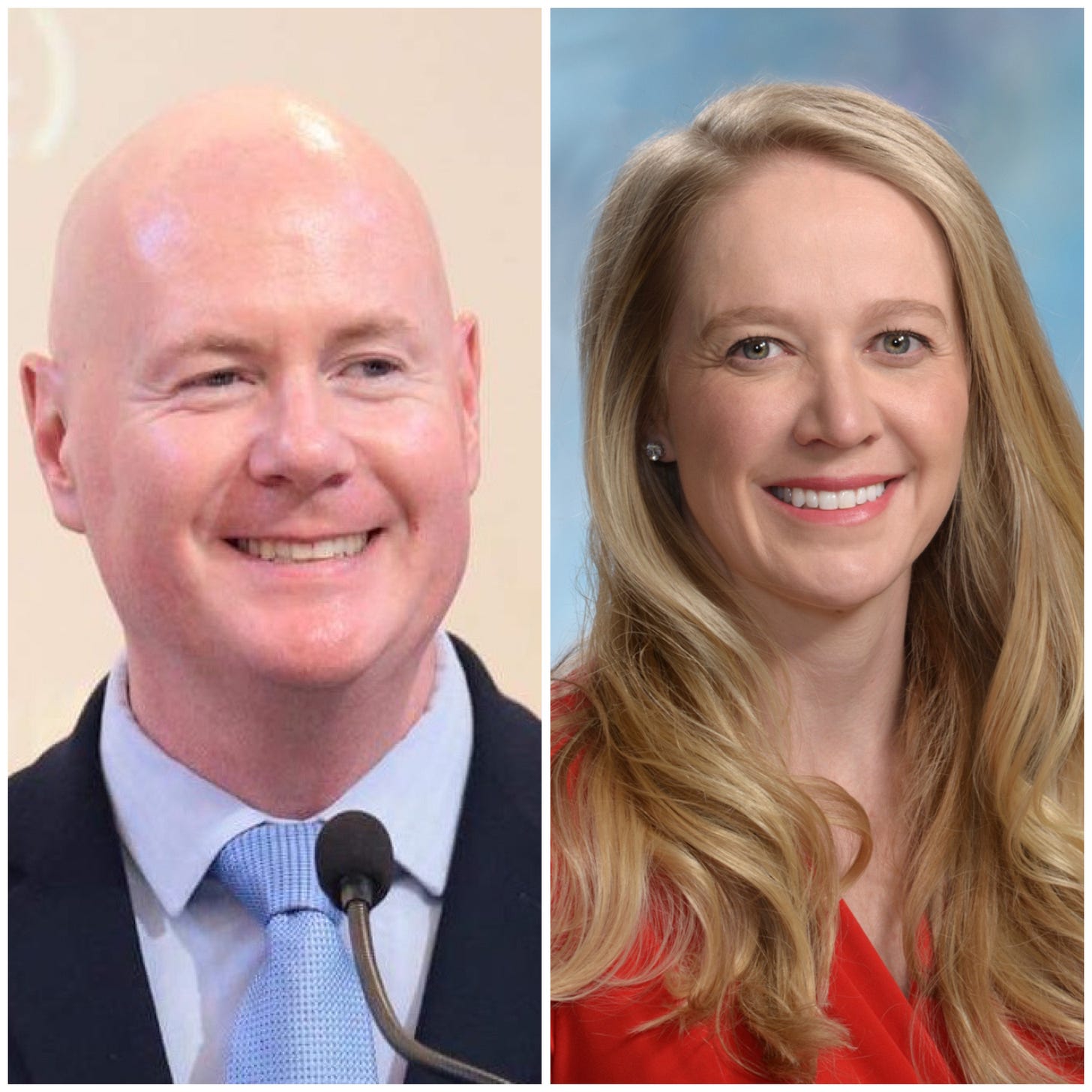Securing South Dakota's land – American soil – is not a partisan issue
Guest column by Sen. Erin Tobin & Steve Yates, America First Policy Institute
South Dakota’s agricultural land is a strategic asset providing food security and independence to the United States, and our farmers are an essential part of the nation’s fabric. South Dakota has approximately 29,400 farms covering 43.2 million acres and supporting about one in every five jobs across the state. In addition, the crops we harvest, including soybeans, corn, wheat and sunflowers; and the cattle, pigs, chickens and turkeys we raise contribute $11.7 billion to the economy.
Agriculture also offers a way for communities to build and maintain strong relationships. Many farmers are deeply rooted in their communities and take pride in their work. South Dakota is home to a vibrant agricultural community that has existed for generations. As a result, there is a strong sense of pride among farmers, who continue to work tirelessly to provide quality products for their customers. South Dakota farmers are a vital part of the state’s culture, from the farmers’ markets to the roadside stands.
POINT: School Choice Week renews hope for education in South Dakota
COUNTERPOINT: 'School choice' equals vouchers
However, there is a threat to South Dakota agricultural land. South Dakotans must be vigilant because foreign adversaries own a significant amount of U.S. agricultural land. Allied countries, such as Canada, the Netherlands, and Italy, hold large tracts of U.S. land, which does not necessarily impact our national security. On the other hand, countries such as Communist China, spreading malign influence at all levels of our society to undermine us, should not be allowed to acquire it– especially in South Dakota, where we are preparing to welcome the B-21 bomber to Ellsworth Air Force Base.
The Chinese Communist Party (CCP) is positioning China as an adversary of the United States, politically and economically, with the stated intention of overtaking us. Securing and dominating world food supply chains is an integral part of China's Belt and Road Initiative, which also sees them hoarding computer chips, minerals and other sensitive commodities. According to U.S. Department of Agriculture reports, Chinese investors' holdings of U.S. agricultural land surged from 13,720 acres in 2010 to 352,140 acres in 2020, or a stunning 5,300% increase. In total, this land is worth approximately $1.9 billion. The average U.S. farm is 445 acres, so nearly 800 American families could farm this acreage.
Why would we allow our enemy to own and control the most valuable resource in the world? Throughout history, wars have been fought and lives lost over the control of land and resources. Each year our land becomes more valuable as our population grows. This is a national security issue and food security issue that we owe to our children and grandchildren to fix now.
Preventing CCP control of U.S. agricultural land is possible through legislative action and has stood up to constitutional muster. At least 12 states, including Arizona, Iowa, Kentucky, Maryland, Minnesota, Missouri, Nebraska, North Dakota, Oklahoma, Pennsylvania, South Carolina, and Wisconsin, have already enacted laws effectively preventing the CCP from controlling agricultural land. At least six, including South Dakota, have introduced legislation in the 2023 session.
Securing South Dakota's land – America's land – is not a partisan issue. Every American should be concerned about securing our food supply from threats to America. In August 2022, the Democrat-supermajority California legislature passed the Food and Farm Security Act, which would have prohibited foreign governments from purchasing, acquiring, leasing, or holding agricultural land.
The CCP poses a unique threat to our civil society, including our precious land resources and food supply. The best way to secure our Nation is through economic prosperity. Therefore, we must fortify our supply chains and ensure national self-reliance to marginalize the CCP and its strategies to subvert us. South Dakota should lead the way in this mission by banning the CCP and its subsidiaries from controlling the agricultural land rightfully belonging to our citizens.
Sen. Erin Tobin is a legislator from Winner and is carrying legislation to establish Committee on Foreign Investment in the United States (CFIUS) — South Dakota.
Steve Yates is an America First Policy Institute fellow and former national security advisor in the White House during the George W. Bush administration.




The governor’s plan to resolve the issue of potential CCP purchasing SD ag land is bureaucratic overreach. We already have Article XVII of our SD Constitution that bans corporate ownership of ag land (FOREIGN and domestic), we also have SDCL 47-9a-1 that limits individual foreigners to owning no more than 160 acres of our ag land. The only loophole we need closed would’ve been covered by HB 1069, a simple bill that prohibited foreign governments (like the CCP) from buying our ag land. Unfortunately, the prime sponsor pulled that bill, I’m sure at the request of the governor...so her plan would have a better shot at passing. Her plan though is typical government overreach and creates a huge opportunity for abuse of power. It would create a new layer of bureaucracy with her board that would “review” proposed purchases and would then make a recommendation to whoever the governor is to solely make the final decision. Hmmm...so ripe for abuse! Maybe certain purchases are approved or disapproved to coincide with corresponding campaign contributions or lack thereof? As a conservative, I much prefer the issue be resolved with as little government as possible...that is not the governor’s plan...it WOULD be with HB1069.
Wouldn’t we just seize Chinese owned land at the outset of hostilities like every country ever? So basically we’re talking about not allowing China to invest in US agriculture, so what’s the actual play here. I guess I’m wondering why the push against China owning farmland now and what group of all read probably too rich Americans profits from cutting land owners off from buyers? Are we just trying to depress land prices so Monsanto or some other conglomerate can buy it cheaper?